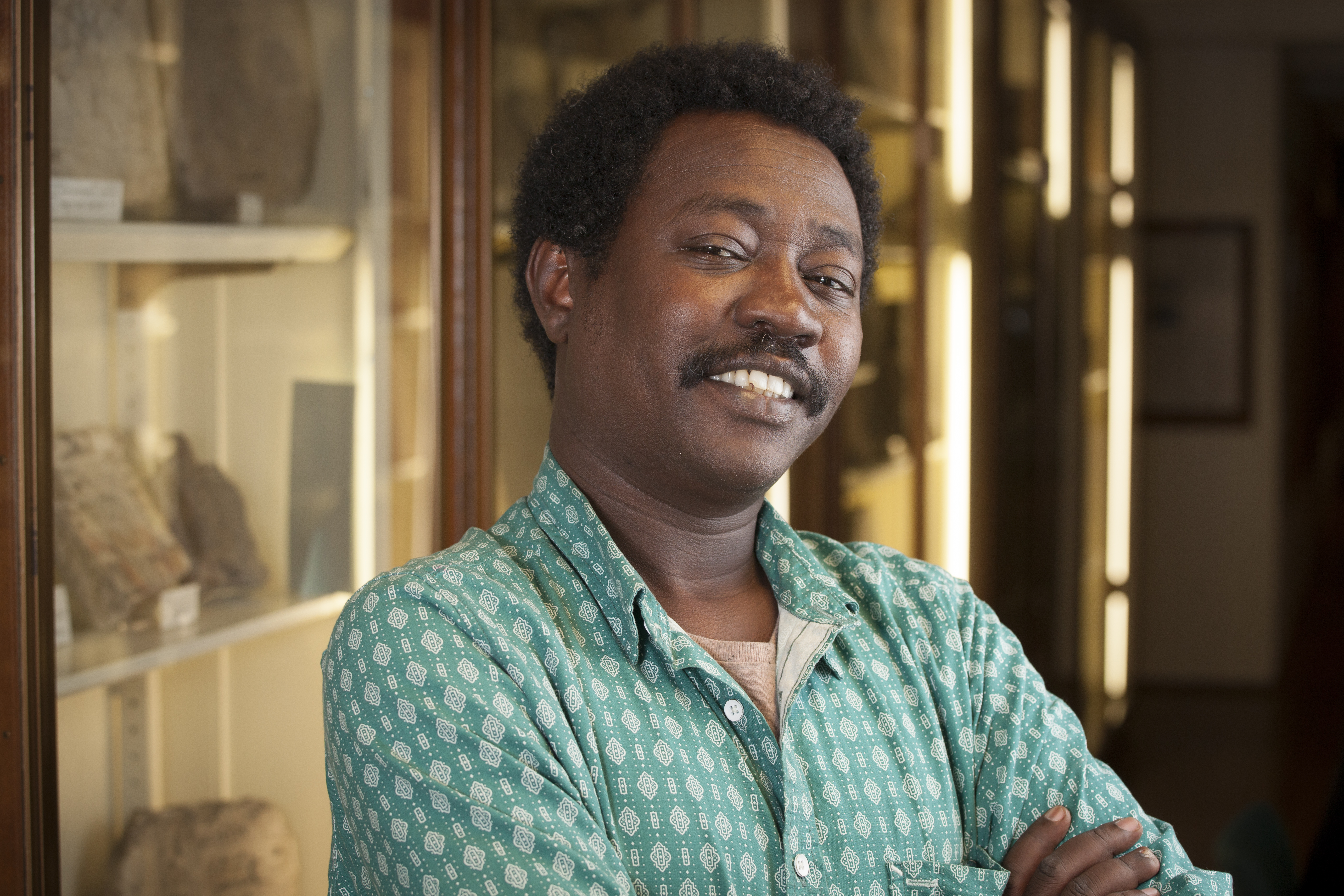al-Saddiq al-Raddi is one of the leading African poets writing in Arabic today. He has gained a wide audience in his native Sudan for his imaginative approach to poetry and for the delicacy and emotional frankness of his lyrics. His poetry has always been concerned with the rich cultural and linguistic diversity of Sudan and its complex history. Saddiq was born in 1969 and grew up in Omdurman Khartoum where he lived until forced into exile in 2012.
From 2006, he was the cultural editor of Al-Sudani newspaper until he was sacked from his position for political reasons (along with 22 other colleagues) in July 2012 during the uprising against the dictatorship of Omar Al-Bashir. Saddiq only escaped imprisonment because, thanks to the miraculous timing of Poetry Parnassus (the world’s largest ever gathering of international poets at which Saddiq represented Sudan), he was in the UK when a series of mass arrests took place. He successfully applied for asylum and is now living in London.
Saddiq’s first poetry collection Songs of Solitude was published in 1996 (second edition, 1999). He has also published The Sultan’s Labyrinth (1996) and The Far Reaches of the Screen… (1999 & 2000); all three collections were published in one volume as Saddiq’s collected poems in Cairo in 2009.
– An excerpt from an article by the Poetry Translation Centre
Here al-Sadiq represents Sudan in 2012’s Poetry Parnassus.
An interview with al-Saddiq
How does living in exile affect your poetry?
Of course a new place and a new life impact the thought and consciousness of the poet. The new place here, despite being “exile,” is at the same time a new culture and a new way of life. Yes, I’ve been here for two and a half years and my experience outside of my country from the beginning has differed from those of my generation who emigrated two decades ago, and I have felt a change in my ways of thinking in writing poetry, and I have touched on this in the new texts that I have written here and that I’m still working on. I hope to publish a collection of poems soon in a book.
To write when you are outside the cultural and social surroundings that you were established in means that you are looking for your identity from another place, and also looking at it in another place. This highlights your need here for another perspective for vision and language, resulting in a new suffering, of course, other than that which you had known and experienced previously.
What do foreign-language poets have to offer the UK?
Poetry translation from the various languages of immigrant poets to the English language certainly adds to poetry written in English various new cultural climates. In addition, different poetry translation projects within which immigrant poets could innovate towards the goal of intercultural communication would also inject vitality in the English poetry scene.
The outcome of these dialogues would certainly consolidate the diversity and multiculturalism that characterise the UK.


